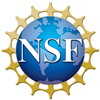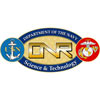Read the Lau geomicrobiology expedition blog here
A team of NSF-sponsored scientists aboard R/V Roger Revelle is exploring some of the world's most extreme environments to better understand the ecology and diversity of microbial communities associated with actively forming deep-sea hydrothermal deposits.
Funded by the US National Science Foundation, Dr Anna-Louise Reysenbach and her international team of scientists are using the Remotely Operated Vehicle Jason to visit, view and document several active high-temperature hydrothermal vent fields that provide excellent natural laboratories for exploring the factors that influence the diversity and relationships of microbial communities that thrive in extreme environments -- places where acidic high temperature vent fluids mix with cold oxygenated seawater.
You can follow this epic journey here, as recorded daily in Dr Reysenbach 's live blog, which is transmitted via HiSeasNet back to shore.
For more information, see http://laugeomicro2015.blogspot.com/

Research vessel operations at Scripps Institution of Oceanography are supported by the National Science Foundation (Awards 1119644, 1212770, 1227624, and 1321002).

R/V Roger Revelle is operated by Scripps Institution of Oceanography under a charter agreement with the Office of Naval Research. Roger Revelle is one of six major oceanographic research vessels owned by the U.S. Navy and operated within the University-National Oceanographic Laboratory System as shared-use research facilites.
- R/V Sally Ride
-
R/V Roger Revelle
-
Handbook
- Section 1: Welcome Aboard
- Section 2: Specifications
- Section 3: Vessel Layout Description
- Section 4: Ship's and Scientific Equipment Description
- Section 5: Technical Services and Special Equipment
- Section 6: Navigation and Communications Capability
- Section 7: Safety
- Section 8: Ship Organization
- Section 9: Scientific Berthing Plan
- Specifications
- Schematic Drawings
- Berthing Plan
- Scientific Equipment
- Major Shipboard Equipment
-
Handbook
- R/V Robert Gordon Sproul
- R/V Bob and Betty Beyster
- Emerit: R/V Melville
- Emerit: R/V New Horizon
- Emirit: Research Platform FLIP
- Preventing harassment and discrimination
- Alcohol and illegal drugs: Zero tolerance
- Departure & arrival times
- Pregnancy and Lactation at Sea
- Accommodating Disabilities
- Minimum Age At Sea
- Isotope Use on Scripps Ships
- Geophysical survey requirements in California waters
- Export controls and compliance
- Scientific shipments to Scripps vessels
- Ship to Shore Communications
- Internet use policy
- Winch and Wire Regulations
- Ship Usage Rates
- Data and Sample Distribution Policy
- Stable Isotopes on SIO Ships
- Carryforward of Ship Time
- Using non-ARF vessels
- Transportation Worker's Identification Credential (TWIC)
- Naval Clearances
- Notice to mariners
- Volunteering Aboard Scripps Ships
- USCG Rules for Buoys